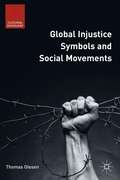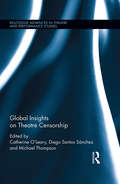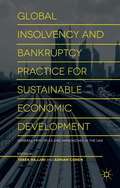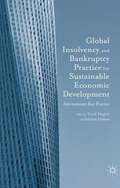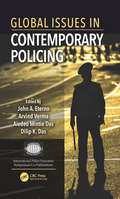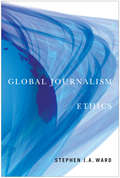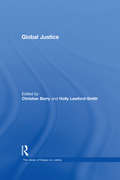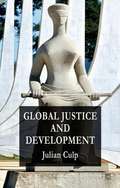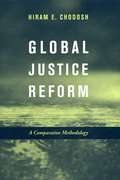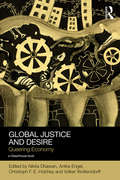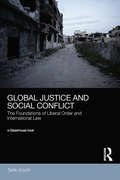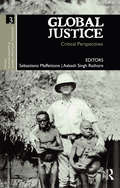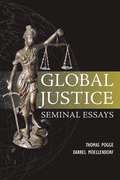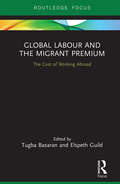- Table View
- List View
Global Impact of the Ukraine Conflict: Perspectives from International Law
by Shuichi Furuya Hitomi Takemura Kuniko OzakiThe invasion of Ukraine by the Russian Federation and the subsequent military campaigns entail several classical aspects of armed conflict. First, it is a type of international armed conflict between two sovereign states that had been prevalent until the middle of the twentieth century but not in the last several decades. It is also a direct intervention by a superpower into a neighboring state with the former’s aspiration of territorial expansion. This action evokes a scheme of war reminiscent of the nineteenth or early twentieth century. At the same time, however, the invasion is generating in the international community a sense of new phenomena, leading to a new era that may be different from the past three decades following the end of the Cold War. In fact, the hostilities between the Russian Federation and Ukraine, as well as reactions by other states and international organizations, have raised legal and political issues that require scholars to reexamine existing frameworks of the international community and individual rules of international law. The process of applying international law to states is a dynamic one. Rules of international law may and should regulate the behavior of states and provide standards to decide whether a particular act by a state is permissible. At the same time, however, states may change or replace existing rules, and a significant event or series of such events may be a strong motivator to create a new legal framework. In this regard, rules of international law and the conduct of states are in a dialectical relationship. International law can both shape a mode of conduct and be shaped by that conduct—being its creator as well as its creation. The Ukraine conflict is not an exception. We can discuss the conduct of the Russian Federation, Ukraine, other states and international organizations and evaluate their legality and legitimacy from the viewpoint of existing rules. However, we may also reevaluate the current rules of international law through the lens of the Ukraine conflict and discuss possible changes to those rules in the future. Inspired by the latter aspect of the international legal process, the present book aims to examine the impact of the Ukraine conflict, whether salient or potential, on various rules of international law. Most of the authors are from Japan and other Asian countries that are geographically remote from the site of the conflict. It is often true, however — and particularly in this case — that those keeping an appropriate distance can look at relevant issues in a broader view and from a more objective perspective. To what extent and in what manner may the Ukraine conflict have an impact on the legal framework of the international community and the rules of international law? This book is the first to answer those questions in a comprehensive manner.
Global Information Warfare: The New Digital Battlefield, Second Edition
by Andrew Jones Gerald L. KovacichSince the turn of the century much has happened in politics, governments, spying, technology, global business, mobile communications, and global competition on national and corporate levels. These sweeping changes have nearly annihilated privacy anywhere in the world and have also affected how global information warfare is waged and what must be do
Global Injustice Symbols and Social Movements
by Thomas OlesenGlobal Injustice Symbols and Social Movements theorizes how transnational social movements create symbols of injustice in order to foster and sustain the solidarity necessary for their success. Olesen examines our collective moral and political maps, dotted with symbols shaped by political dynamics beyond their local or national origin, and offers the first systematic sociological treatment of this important phenomenon. Using empirical data collected from media archives, official documents,and internet sources, Olesen seeks to answer how global injustice symbols are formed, how they are employed by political actors, and to what ends.
Global Insights on Theatre Censorship (Routledge Advances in Theatre & Performance Studies)
by Michael Thompson Diego Santos Sánchez Catherine O'LearyTheatre has always been subject to a wide range of social, political, moral, and doctrinal controls, with authorities and social groups imposing constraints on scripts, venues, staging, acting, and reception. Focusing on a range of countries and political regimes, this book examines the many forms that theatre censorship has taken in the 20th century and continues to take in the 21st, arguing that it remains a live issue in the contemporary world. The book re-examines assumptions about prohibition and state control, and offers a more complex reading of theatre censorship as a continuum ranging from the unconscious self-censorship built into social structures and discursive practices, through bureaucratic regulation or unofficial influence, up to detention and physical violence. An international team of contributors offers an illuminating set of case studies informed by both new archival research and the first-hand experience of playwrights and directors, covering theatre censorship in areas such as Spain, Portugal, Brazil, Poland, East Germany, Nepal, Zimbabwe, the USA, Ireland, and Britain. Focusing on right-wing dictatorships, post-colonial regimes, communist systems and Western democracies, the essays analyze methods and discourses of censorship, identify the multiple agents involved, examine the responses of theatremakers, and show how each example reveals important features of its political and cultural contexts. Expanding understanding of the nature and effects of censorship, this volume affirms the power of theatre to challenge authorized discourses and makes a timely contribution to debates about freedom of expression through performance.
Global Insolvency and Bankruptcy Practice for Sustainable Economic Development: International Best Practice
by Adrian Cohen Tarek HajjiriThis book is a comparative study of international practices in bankruptcy law, providing perspectives from a variety of specialisms including practitioners, lawyers, bankers, accountants and judges from the United Arab Emirates, the UK and Singapore.
Global Insolvency and Bankruptcy Practice for Sustainable Economic Development: International Best Practice
by Adrian Cohen Tarek HajjiriThis book is a comparative study of international practices in bankruptcy law, providing perspectives from a variety of specialisms including practitioners, lawyers, bankers, accountants and judges from the United Arab Emirates, the UK and Singapore.
Global Issues in Contemporary Policing (International Police Executive Symposium Co-Publications)
by Arvind Verma Dilip K. Das John A. Eterno Aiedeo Mintie DasThis book addresses six areas of policing: performance management, professional and academic partnerships, preventing and fighting crime and terrorism, immigrant and multicultural populations, policing the police, and cyber-security. The book contains the most current and ground-breaking research across the world of policing with contributors from over 20 countries. It is also a suitable reference or textbook in a special topics course. It consists of edited versions of the best papers presented at the IPES annual meeting in Budapest.
Global Journalism Ethics
by Stephen J.A. WardStephen Ward argues that present media practices are narrowly based within the borders of single country and thus unable to successfully inform the public about a globalized world. Presenting an ethical framework for work in multimedia, the author extends John Rawl's theories of justice and the human good to redefine the aims for which journalism should strive and then applies this new foundation to issues such as the roles of patriotism and objectivity in journalism. An innovative argument that presents a necessary corrective to contemporary media practices, Global Journalism Ethics is a theoretically rich study for journalists on the air, in print, and on the internet.
Global Justice (The Library of Essays on Justice)
by Holly Lawford-SmithThis volume brings together a range of influential essays by distinguished philosophers and political theorists on the issue of global justice. Global justice concerns the search for ethical norms that should govern interactions between people, states, corporations and other agents acting in the global arena, as well as the design of social institutions that link them together. This volume includes articles that engage with major theoretical questions such as the applicability of the ideals of social and economic equality to the global sphere, the degree of justified partiality to compatriots, and the nature and extent of the responsibilities of the affluent to address global poverty and other hardships abroad. It also features articles that bring the theoretical insights of global justice thinkers to bear on matters of practical concern to contemporary societies, such as policies associated with immigration, international trade and climate change.
Global Justice And Development
by Julian CulpDefending a procedural conception of global justice that calls for the establishment of reasonably democratic arrangements within and beyond the state, this book argues for a justice-based understanding of social development and justifies why a democracy-promoting international development practice is a requirement of global justice.
Global Justice Reform: A Comparative Methodology
by Hiram E. ChodoshGlobal Justice Reform critiques and rethinks two neglected subjects: the nature of comparison in the field of comparative law and the struggles of national judicial systems to meet global rule of law objectives. Hiram Chodosh offers a candid look at the surprisingly underdeveloped methodology of comparative legal studies, and provides a creative conceptual framework for defining and understanding the whys, whats, and hows of comparison. Additionally, Chodosh demonstrates how theories of comparative law translate into practice, using contemporary global justice reform initiatives as a case study, with a particular focus on Indonesia and India. Chodosh highlights the gap between the critical role of judicial institutions and their poor performance (for example, political interference, corruption, backlog, and delay), discussing why reform is so elusive, and demonstrating the unavoidable and essential role of comparison in reform proposals.Throughout the book, Chodosh identifies several sources of comparative misunderstanding that impede successful reforms and identifies the many predicaments reformers face, detailing a wide variety of designs, methods, and social dilemmas. In response to these seemingly insurmountable challenges, Chodosh advances some novel conceptual strategies, first by drawing on a body of non-legal scholarship on self-regulating, emergent systems, and then by identifying a series of anti-dilemma strategies that draw upon insights about the nature of comparison.
Global Justice and Desire: Queering Economy (Social Justice)
by Nikita Dhawan Antke Engel Christoph H.E. Holzhey Volker WoltersdorffEmploying feminist, queer, and postcolonial perspectives, Global Justice and Desire addresses economy as a key ingredient in the dynamic interplay between modes of subjectivity, signification and governance. Bringing together a range of international contributors, the book proposes that both analyzing justice through the lens of desire, and considering desire through the lens of justice, are vital for exploring economic processes. A variety of approaches for capturing the complex and dynamic interplay of justice and desire in socioeconomic processes are taken up. But, acknowledging a complexity of forces and relations of power, domination, and violence – sometimes cohering and sometimes contradictory – it is the relationship between hierarchical gender arrangements, relations of exploitation, and their colonial histories that is stressed. Therefore, queer, feminist, and postcolonial perspectives intersect as Global Justice and Desire explores their capacity to contribute to more just, and more desirable, economies.
Global Justice and Due Process
by Larry MayThe idea of due process of law is recognised as the cornerstone of domestic legal systems, and in this book Larry May makes a powerful case for its extension to international law. Focussing on the procedural rights deriving from Magna Carta, such as the rights of habeas corpus (not to be arbitrarily incarcerated) and nonrefoulement (not to be sent to a state where harm is likely), he examines the legal rights of detainees, whether at Guantanamo or in refugee camps. He offers a conceptual and normative account of due process within a general system of global justice, and argues that due process should be recognised as jus cogens, as universally binding in international law. His vivid and compelling study will be of interest to a wide range of readers in political philosophy, political theory, and the theory and practice of international law.
Global Justice and International Economic Law
by Frank J. Garcia John Linarelli Chi CarmodySince the beginnings of the GATT and the Bretton Woods institutions, and on to the creation of the WTO, states have continued to develop institutions and legal infrastructure to promote global interdependence. International economic law, a field dominated by legal regimes to liberalize international trade but that also includes international financial law and international law relating to economic development, has become a dense web of treaty commitments at the multilateral, regional, and bilateral levels. International lawyers are experts in understanding how these institutions operate in practice, but they tend to uncritically accept comparative advantage as the principal normative criterion to justify these institutions. In contrast, moral and political philosophers have developed accounts of global justice, but these accounts have had relatively little influence on international legal scholarship and on institutional design. What is needed is a multidisciplinary approach to understanding the economic fairness problems that societies face as they become increasingly interdependent, and the solutions that international economic law and institutions might facilitate. This volume reflects the results of a symposium held at Tillar House, the American Society of International Law headquarters in Washington, DC, in November 2008, which brought together philosophers, legal scholars, and economists to discuss the problems of understanding international economic law from the standpoints of rights and justice, in particular from the standpoint of distributive justice.
Global Justice and International Economic Law
by Frank J. GarciaFor centuries, international trade has been seen as essential to the wealth and power of nations. More recently we have started to understand its problematic role as an engine of distributive justice. In this compelling book Frank J. Garcia proposes a new way to evaluate, construct and manage international trade – one that is based on norms of economic justice, comparative advantage and national interest. Garcia examines three ways to conceptualize the problem of trade and global justice, drawn from Rawlsian liberalism, communitarianism and consent theory. These approaches illustrate specific issues of importance to the way global justice has been theorized, offering a pluralistic mode of arguing for global justice and highlighting the unique modes of discourse we employ when engaging with global justice and their implications for conceptualizing and arguing the problem. Garcia suggests a new direction for trade agreements built around truly consensual trade negotiations and the kind of international economic system they would structure.
Global Justice and International Labour Rights
by Hanna Lerner Dahan, Yossi and Lerner, Hanna and Milman-Sivan, Faina Yossi Dahan Faina Milman-SivanDespite the growing global consensus regarding the need to ensure minimal labour standards, such as adequate safety and health conditions, freedom of association, and the prohibition of child labour, millions of workers across the world continue to work in horrific conditions. Who should be held responsible, both morally and legally, for protecting workers' rights? What moral and legal obligations should individuals and institutions bear towards foreign workers in their countries? Is there any democratic way to generate, regulate, and enforce labour standards in a global labour market? This book addresses these questions by taking a fresh look at the normative assumptions underlying existing and proposed international labour regulations. By focusing on international labour as a particular sphere of justice, it seeks to advance both the contemporary philosophical debate on global justice and the legal scholarship on international labour.
Global Justice and Social Conflict: The Foundations of Liberal Order and International Law
by Tarik KochiGlobal Justice and Social Conflict offers a ground-breaking historical and theoretical reappraisal of the ideas that underpin and sustain the global liberal order, international law and neoliberal rationality. Across the 20th and 21st centuries, liberalism, and increasingly neoliberalism, have dominated the construction and shape of the global political order, the global economy and international law. For some, this development has been directed by a vision of ‘global justice’. Yet, for many, the world has been marked by a history and continued experience of injustice, inequality, indignity, insecurity, poverty and war – a reality in which attempts to realise an idea of justice cannot be detached from acts of violence and widespread social conflict. In this book Tarik Kochi argues that to think seriously about global justice we need to understand how both liberalism and neoliberalism have pushed aside rival ideas of social and economic justice in the name of private property, individualistic rights, state security and capitalist ‘free’ markets. Ranging from ancient concepts of natural law and republican constitutionalism, to early modern ideas of natural rights and political economy, and to contemporary discourses of human rights, humanitarian war and global constitutionalism, Kochi shows how the key foundational elements of a now globalised political, economic and juridical tradition are constituted and continually beset by struggles over what counts as justice and over how to realise it. Engaging with a wide range of thinkers and reaching provocatively across a breadth of subject areas, Kochi investigates the roots of many globalised struggles over justice, human rights, democracy and equality, and offers an alternative constitutional understanding of the future of emancipatory politics and international law. Global Justice and Social Conflict will be essential reading for scholars and students with an interest in international law, international relations, international political economy, intellectual history, and critical and political theory.
Global Justice and the Politics of Recognition
by Simon Thompson Tony BurnsTwo issues have been central within political philosophy in the last decade or so. The first is the debate over 'the politics of distribution versus the politics of recognition, ' which is usually associated with the work of Axel Honneth and Nancy Fraser. The second is discussion of the phenomenon known as globalization, focusing on the notions of cosmopolitanism and global justice. This book explores the relationship between these two issues. It considers not only the global dimension of the politics of recognition, but also how recognition theory can provide new insights into our understanding of problems of global justice, especially those of a non-distributive nature. A number of the contributors consider the relevance of Hegel's theory of recognition for our understanding of these issues.
Global Justice, Christology, and Christian Ethics
by Lisa Sowle CahillGlobal realities of human inequality, poverty, violence and ecological destruction call for a twenty-first-century Christian response which links cross-cultural and interreligious cooperation for change to the Gospel. This book demonstrates why just action is necessarily a criterion of authentic Christian theology, and gives grounds for Christian hope that change in violent structures is really possible. Lisa Sowle Cahill argues that theology and biblical interpretation are already embedded in and indebted to ethical-political practices and choices. Within this ecumenical study, she explores the use of the historical Jesus in constructive theology; the merits of Word and Spirit Christologies; the importance of liberation and feminist theologies as well as theologies from the global south; and also the possibility of qualified moral universalism. The book will be of great interest to all students of theology, religious ethics and politics, and biblical studies.
Global Justice, Human Rights and the Modernization of International Law
by Riccardo Pisillo Mazzeschi Pasquale De SenaThis book is based on the observation that international law is undergoing a process of change and modernization, driven by many factors, among which the affirmation and consolidation of the role of the individual and of the theory of human rights stand out. In the contemporary world, international law has demonstrated an ability to evolve rapidly. But it is still unclear whether its modernization process is also producing structural changes, which affect the subjects, the sources and even the very purpose of this law. Is it truly possible to speak of a paradigmatic and ideological change in the international legal system, one that also involves a transition from a state-centred international order to a human-centred one, and from inter-state justice to global justice?The book addresses three fundamental aspects of the modernization process of international law: the possible widening of the concept of international community and of the classic assumptions of statehood; the possible diversification of the sources of general international law; and the ability of international law to adapt to new challenges and to achieve the main goals for humanity set by the United Nations.The overall objective of the book is to provide the tools for a deeper understanding of the transition phase of contemporary international law, by examining the major problems that characterize this phase. The book will also stimulate critical reflection on the future prospects of international law.
Global Justice, State Duties
by Malcolm Langford Wouter Vandenhole Martin Scheinin Willem van Genugten Malcolm Langford Wouter Vandenhole Martin Scheinin Willem Van GenugtenThe rise of globalization and the persistence of global poverty are straining the territorial paradigm of human rights. This book asks if states possess extraterritorial obligations under existing international human rights law to respect and ensure economic, social, and cultural rights and how far those duties extend. Taking a departure point in theory and practice, the book is the first of its kind to analyze the principal cross-cutting legal issues at stake: the legal status of obligations, jurisdiction, causation, division of responsibility, and remedies and accountability. The book focuses specifically on the role of states but also addresses their duties to regulate powerful nonstate actors. The authors demonstrate that many key issues have been resolved or clarified in international law while others remain controversial or await the development of further practice, particularly the scope of jurisdiction and the quantitative dimension of extraterritorial obligations to fulfill.
Global Justice: Critical Perspectives (Ethics, Human Rights and Global Political Thought)
by Sebastiano Maffettone; Aakash Singh RathoreThe global justice debate has been raging for forty years. Not merely the terms and conditions, but, more deeply, the epistemic, existential and ethical grounds of the international relations of persons, states and institutions are being determined, debated and negotiated. Yet the debate remains essentially a parochial one, confined largely to Western intellectuals and institutional spaces. An Introduction to the field is therefore still urgently required, because it remains necessary to include more ‘global’ voices into this debate of worldwide reach and significance. The book addresses this need in two closely related ways. In Part I, it introduces the main contours of the debate by reproducing three of the most fundamental and influential essays that have been composed on the topic — essays by Peter Singer, Thomas Pogge and Thomas Nagel. In Part II, it makes a decisive critical intervention in the main stream of the debate through exposing the participation deficit afflicting the theorization of global justice. This part begins with a well-known essay by Amartya Sen, who famously referred to the ‘parochialism’ of the global justice debate in making a break with the Rawlsian paradigm that has dominated the field until now. Finally, a series of lively essays newly composed for this volume reflect on the possibilities for deparochializing global justice opened up by Sen’s work in this area. The book will be useful for students of international relations, postcolonial studies, political theory, and social and political philosophy, as well as for those engaged in studies of globalization or global studies.
Global Justice: Seminal Essays
by Thomas Pogge Darrel MoellendorfCarefully selected papers by political philosophers and political theorists on global justice.
Global Labour and the Migrant Premium: The Cost of Working Abroad (Routledge Studies in Liberty and Security)
by Elspeth Guild Tugba BasaranThis book provides the first systematic account of the premium costs that migrants pay to live and work abroad. Reducing the costs of international labour migration, specifically worker-paid costs for low-skilled employment, has become an important item on the global agenda over the last years and is particularly pertinent for the UN’s Global Compact on Safe, Orderly and Regular Migration. Recruitment costs alone amount in most migration corridors to anywhere between one and ten months of foreign earnings and many migrants may well lose between one and two years of foreign earnings, if all costs are considered. This book is intended as a primer for evidence-based policy for reducing the costs of international labour mobility. The contributors include academics from law, economics and politics, but also authors from international organizations, non-governmental organizations, as well as the voices of migrants. The hope of the editors is that this small collection sets the basis for evidence-based policies that seek to reduce the costs of international migration. This book will be of interest to scholars and students of migration, globalization, law, sociology and international relations, as well as practitioners and policy makers.
Global Law Series: Legalized Families in the Era of Bordered Globalization (Global Law Series)
by Daphna HackerProviding a panoramic and interdisciplinary perspective, this book explores the interrelations between globalization, borders, families and the law. It considers the role of international, multi-national and religious laws in shaping the lives of the millions of families that are affected by the opportunities and challenges created by globalization, and the ongoing resilience of national borders and cultural boundaries. Examining familial life-span stages - establishing spousal relations, raising children and being cared for in old age - Hacker demonstrates the fruitfulness in studying families beyond the borders of national family law, and highlights the relevance of immigration and citizenship law, public and private international law and other branches of law. This book provides a rich empirical description of families in our era. It is relevant not only to legal scholars and practitioners but also to scholars and students within the sociology of the family, globalization studies, border studies, immigration studies and gender studies.


